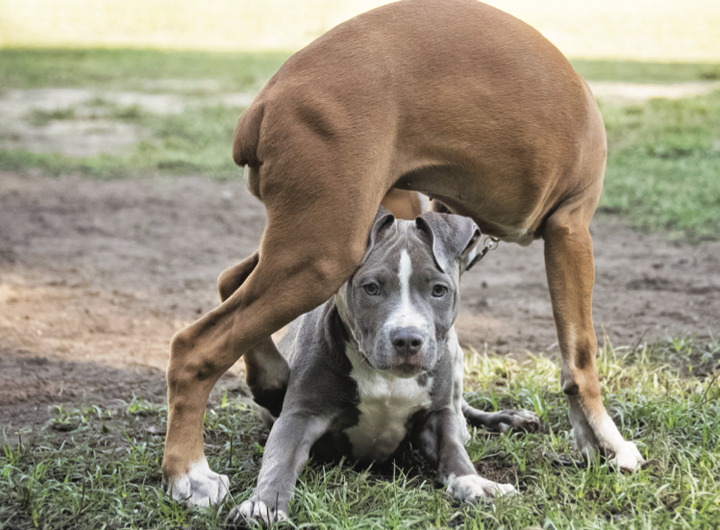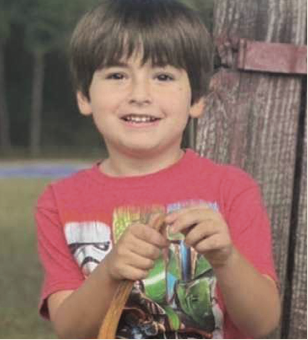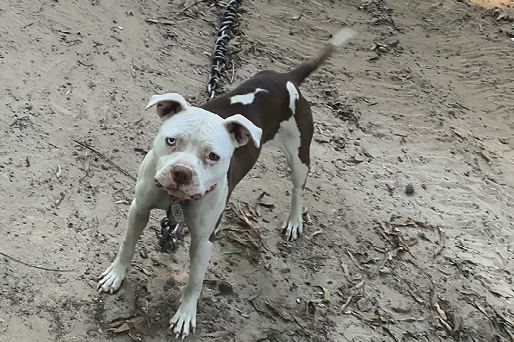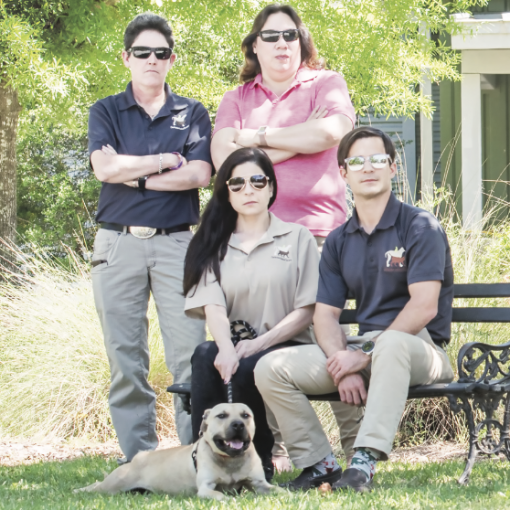By JOE ELMORE, CHARLESTON ANIMAL SOCIETY PRESIDENT AND CEO
Perhaps, the most pressing issue facing animal shelters across South Carolina is the overwhelming number of Pit Bull Type Dogs (PBTDs) entering government and government-contracted facilities. Their disproportionately large numbers, due to a lack of accessible and affordable spay/neuter, create circumstances that place this majestic dog, through no fault of its own, in situations where it is harmed or causes harm to others.
Note: Pit Bull is not recognized by the American Kennel Club (AKC) as a specific breed of dog. Rather it is a cadre of breeds, most often associated with American Staffordshire Terriers, American Bullies, Staffordshire Bull Terriers, American Bulldog, along with any mixed breed dog that shares certain physical characteristics with these terrier-type breeds.
THE PROBLEM:
1. PBTDs are the most prevalent dogs entering South Carolina shelters, costing taxpayers and donors millions of dollars every year through both animal sheltering and animal control efforts: In 2018, nine participating animal shelters indicated that upward of 20,000 dogs entered their shelters that year. Almost 6,000, or 30%, were PBTDs.
2. PBTDs are disproportionately euthanized due to the overwhelming numbers of them entering shelters: In the survey above, seven participating animal shelters, providing both intake and euthanasia data, indicated that nearly half of the dogs euthanized were PBTDs.
3. PBTDs are the exclusive dog of choice for dogfighting:
According to the ASPCA and other leading animal organizations, the most commonly used dog for dogfighting in the United States is a PBTD.
4. PBTDs cause far more severe injuries to South Carolinians than any other dog: According to the South Carolina Department of Health and Environment Control, in 2019, 34% (2,533) of the 7,455 identified breed(s) of dog committing bites were from PBTDs. The next closest breed was Labrador/Labrador mixes at 11% (833 bites). This is also in line with the American Animal Hospital Association’s recent study finding that “pit bulls were responsible for the highest percentage of reported bites across all the studies (22.5%)…” Note: Spayed or neutered dogs are less likely to demonstrate aggression than unaltered dogs.
Representative Chip Huggins (Columbia) has introduced legislation (H.4094) to incentivize spay/neuter of PBTDs by way of requiring annual registration of $25 for fertile/unaltered PBTDs. Owners of PBTDs who have been spayed/neutered are not required to register or do anything. The intent of the legislation, spearheaded by the South Carolina Animal Legislative Coalition (SCALC), is to address the four problems above by:
• Incentivizing spay/neuter
• Relieving significant burdens on animal shelters,
• Reduce the number of dogs available for dogfighting
• Mitigate the amount of harm caused to humans by fertile/unaltered dogs and
• Bring awareness to legislators and the public about the plight of PBTDs in South Carolina.
The impact clearly desired by this legislation is to save PBTDs!
What this bill is NOT:
1. It is NOT a ban on PBTDs. (SCALC is opposed to breed bans.) 2. It is NOT mandatory spay/neuter.
3. It is NOT a financial hardship on PBTD owners.
4. It is NOT a disproportionate burden on any specific demographic group.
What this bill does:
1. Requires PBTD owners to register their dogs with local animal care and control (or its designees) annually at a cost of $25 (the equivalent to a cheap bag of dog food).
2. Provisions are made for the PBTD owner to opt for spaying/neutering instead of registering the dog. Should the owner be unable to afford spaying/neutering of his/her dog(s), financial assistance is available. (Nearly every citizen of South Carolina is within 45 miles of a discounted/low-cost spay/neuter

clinic. In addition, most veterinary clinics offer payment plans.) Keep in mind, PBTDs may have two litters of up to 10 puppies per litter each year. PBTD puppies can be sold at fees of approximately $200 in South Carolina. Should an optimal breeding scenario occur, breeding PBTDs may bring in $4,000 each year to a breeder. Conservatively, should only half of the breeding scenario occur (10 puppies vs. 20 puppies annually), $2,000 stands to be made. Arguably, the annual registration fee for a fertile/unaltered PBTD should be much higher; however, that is not politically realistic.
SCALC has also requested a financial allocation from the State Legislature for spay/neuter. Regardless, several nonprofits have committed support to making affordable and accessible spay/neuter available to PBTD owners.

Nearly all dog owners should be encouraged to spay or neuter their dog(s) and all PBTDs should be spayed or neutered; however, the simple truth is that not all dog breeds are overpopulated (this would be an irresponsible waste of dollars that could otherwise be directed to the most critical issues facing animal shelters) and to mandate spay or neuter for PBTDs is politically unrealistic.
The bill, originally introduced in the 2019-2020 legislative session with much higher registration fees and penalties, was supported by 94% of SC animal shelters participating in a poll conducted by Charleston Animal Society’s No Kill South Carolina initiative. As with most bills introduced in the legislature, amendments are expected to be made to address any issues that might hamper the implementation of the legislation.
Breed-Specific-Legislation, Breed-Specific-Practices and Breed- Specific-Policies
Bill H.4094 should NOT be confused with what is commonly referred to as breed-specific-legislation (BSL), which primarily refers to (1) breed bans, (2) elevated permit-type fees and procedures and (3) mandatory spay/neuter of specific breeds. Unfortunately, advocates both for and against breed-specific- legislation nearly always stereotype the legislation and rely on philosophical/idealistic views rather than research-based and/or data-driven arguments.
Breed-specific-legislation may have both positive and negative outcomes for animals. For example, in addition to H.4094, legislation requiring the spay/neuter license plate funding to prioritize the animals most at-risk (PBTDs) would benefit animals far greater than using the dollars to spay or neuter Pomeranians, Golden Retrievers, Cocker Spaniels, and many other breeds that are not overpopulated and rarely enter animal shelters.
Similarly, breed-specific-practices, mostly implemented by animal organizations, are helpful when grant-makers focus spay/neuter funding on breeds that are most at-risk due to being overpopulated, but harmful when many animal shelters will not accept PBTDs, even in evacuation efforts during hurricanes and other emergencies. While sometimes veiled by size/weight requirements or local market needs, many animal organizations refuse to take in PBTDs, but are all too eager to take in premium dogs (puppies and breeds in high demand) and transport them across country. This does not help the plight of animals anywhere.
Breed-specific-policies are mostly established by the insurance industry, with far-reaching effects. Many frontline businesses and other entities must conform to the insurance carriers’ requirements for policy coverage. Perhaps this is most notable in housing, where apartment complexes refuse certain breeds or homeowners are unable to gain coverage based on the breed of their dog(s). Even a number, if not most, military installations engage in banning PBTDs and other specific breeds of dogs from residing on or visiting the installations.
On a bright note, some of the largest insurance carriers, such as State Farm and Allstate, have moved away from breed-specific- policies and toward offering coverage based on the demonstrated behavior of the dog. Significantly discounting policy costs for spayed or neutered dogs is encouraged!
The plight of PBTDs is mostly supply and demand. H.4094 specifically, but softly, addresses the overpopulation of PBTDs with encouraging and, to a small degree, incentivizing spay or neuter.
H.4094 is referred to as “Jayce’s Law,” in memory of a 6-year- old boy mauled to death by a fertile/unaltered PBTD in Hampton County this year. Jayce’s mother is an advocate for H.4094.





